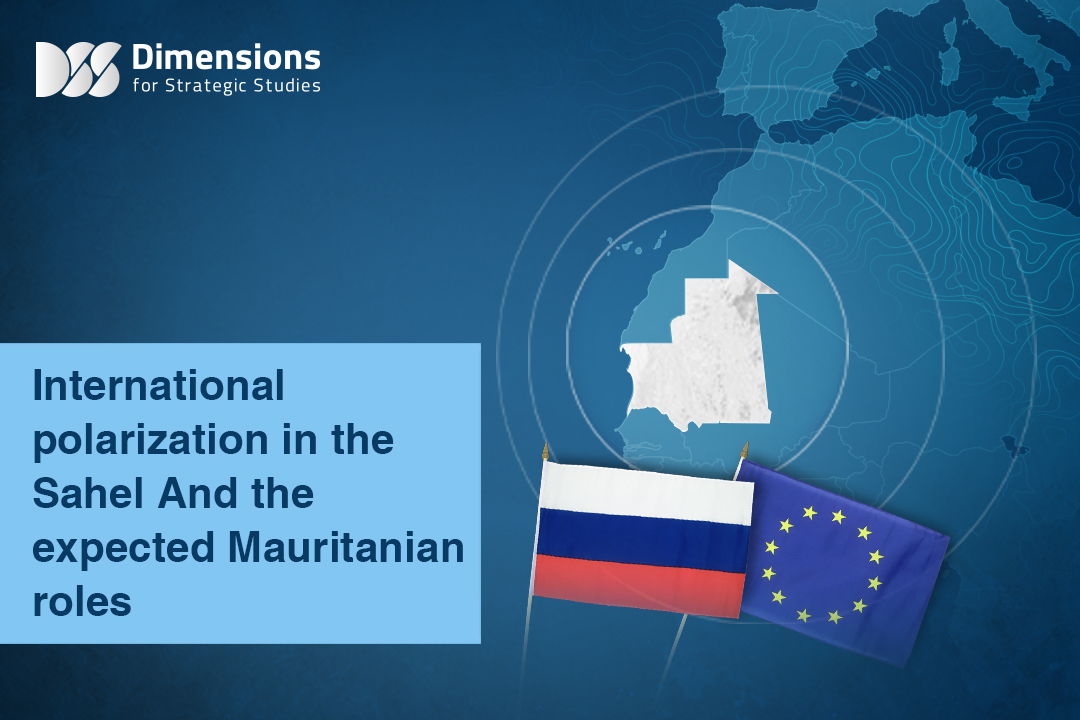
International polarization in the Sahel And the expected Mauritanian roles
2022-08-231921 view
This report sheds light on the expansion of international polarization between the West and Russia from its traditional strongholds towards new arenas in North and West Africa, to rage in several countries, including Mauritania; which enters the circle of polarization, firstly due to its strategic importance to the traditional Western system influencing the region, and secondly because of its geographical intersection with Mali and Algeria, as two of the most important Axis countries that Russia is betting on to be strategic allies in the region.
It became clear that the situation in the region is witnessing a radical change with regard to the nature of the major players, as Western powers no longer have the monopoly in drawing the region’s maps and tools of influence, with Russia’s growing presence in the region’s security and military files, and with its strong military intervention in the crisis plan in Mali, whose traditional colonizer, France, was forced to withdraw its military forces which were engaged in the war on terror from it, in protest of the latter's alliance with Russia.
The report traces the frantic diplomatic activity of Russia and NATO countries in order to gain more influence and control tools in the region, while highlighting the overwhelming security and military background in the race between the two camps.
The report highlights NATO's recent interest in Mauritania, reviewing the historical relations between the two sides, and indicating the risks and challenges, in addition to the opportunities and gains that Nouakchott can reap from this rapprochement, in light of the escalation of Russian influence in the region and the escalation of the activities of well-known Russian militias, Wagner, which is located in Mali, close to the border with Mauritania.
Furthermore, it deals with the decline of the Mauritanian role in the Sahel region, as Nouakchott did not sponsor initiatives in the recent crises in the region, nor did it issue clear positions regarding the military coups that took place in Mali and Burkina Faso.
Finally, The report addresses the negative economic and security effects that international polarization may have on the countries of the region, including Mauritania, if the latter does not adopt flexible policies and shuns absolute dependence on this or that axis.
Read more on the folowing link: International polarization in the Sahel And the expected Mauritanian roles





